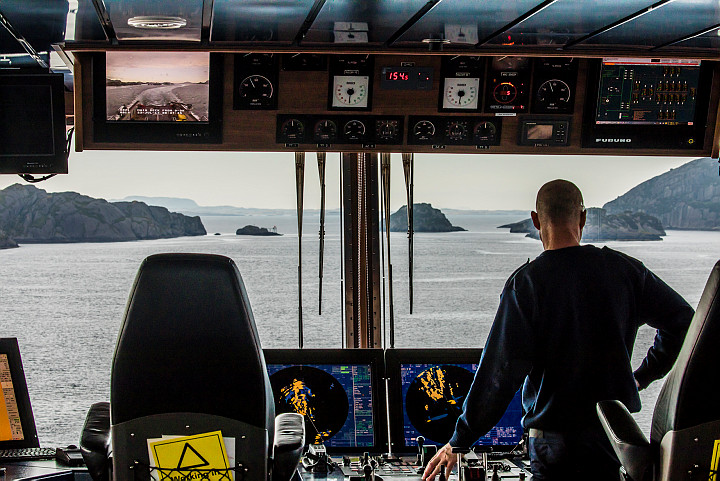What happened?
“The master fell asleep ...”, “... the mate fell asleep on watch ...”, “... fell asleep at the helm ...”, “... the crew member fell asleep at the helm ...”, “... the master fell asleep enroute to a job ...”, “... the autopilot was on and I fell asleep ...”, “... ran aground because the master fell asleep on watch and the lookout had left the bridge to clean the mess/galley ...”, “... the helmsman fell asleep ...”, “... person on watch fell asleep ...”, “... fell asleep before he arrived at the destination and woke up as he hit land ...”, and “... one person on the bridge and that person fell asleep.”
This list is taken from a selection of accident reports from the last year and includes reasons for a vessel running aground. When we receive reports stating “fell asleep on watch” as the cause, in most cases, the crew escaped unharmed. However, vessels have been lost or sustained major material damage, and some accidents have caused environmental damage.
Causes
Some have fallen asleep after a long journey and watch, often at the end of a watch period, while others had just started their watch. Being sufficiently rested often depends on what the rest period has been spent doing, and on whether the quality of the rest period was good. Rest periods and watches characterised by noise, vibration, little sleep or disturbances may lead to a challenging navigational watch. Other significant factors include the time of the day and the crew of the navigational bridge.
Fading daylight, monotonous tasks, poor air quality on the bridge, long watches or inappropriate use of technical aids with redundancy function (such as a bridge navigation watch alarm system) can also cause crew members to fall asleep. The list of direct and underlying factors is long, but the result is the same: “fell asleep on watch”.
Measures
Some measures are required by law or require an assessment by the shipping company and the crew on board. Measures may include a bridge navigation watch alarm system, bridge navigation watch according to the Rules of the sea and the Regulations on watchkeeping, appropriate manning, etc. The list of measures to help prevent things from going wrong and people from falling asleep on watch is long. Moreover, regardless of laws and regulations, watch-keeping personnel must make sure that the quality of their rest period prior to a new watch period is good. Good planning of the hours of work and rest gives safer watches, as well as better rest and necessary sleep.
Focus on safety culture and risk understanding in 2021
You can read more about this year’s focus area here. A common understanding of the risk factors and preventive measures, where the whole crew are involved in the evaluation of the tasks and operation of the vessel, results in a better safety culture. We hope that this can contribute to a lower number of accidents caused by “fell asleep on watch”.
It is vital that the persons who will carry out the work and operate the equipment take safety seriously and have a unified understanding of the risks that come with the job. All on board must be involved in the safety work and agree on the preventive measures for safe work operations. This gives a common ownership and understanding of the risk assessments that need to be done.
The Norwegian Safety Investigation Authority
In a report following the sinking of the fishing vessel M7S Stian-Andre in Øksfjord on 1 October 2020, the Norwegian Safety Investigation Authority establishes that the skipper fell asleep ahead of the accident. The reason why this happened was most likely a combination of three different factors: lack of sleep, fatigue due to the time of day, and insomnia.
According to the Norwegian Safety Investigation Authority, manual navigation before port calls would be a barrier to inattentive operative behaviour. Manual navigation requires more careful attention than automatic navigation. You can find the full report here.
--
Persons working on board must be sufficiently rested to perform their tasks in a safe and proper manner. The ship shall be safely manned so that the provisions relating to hours of rest are met.

